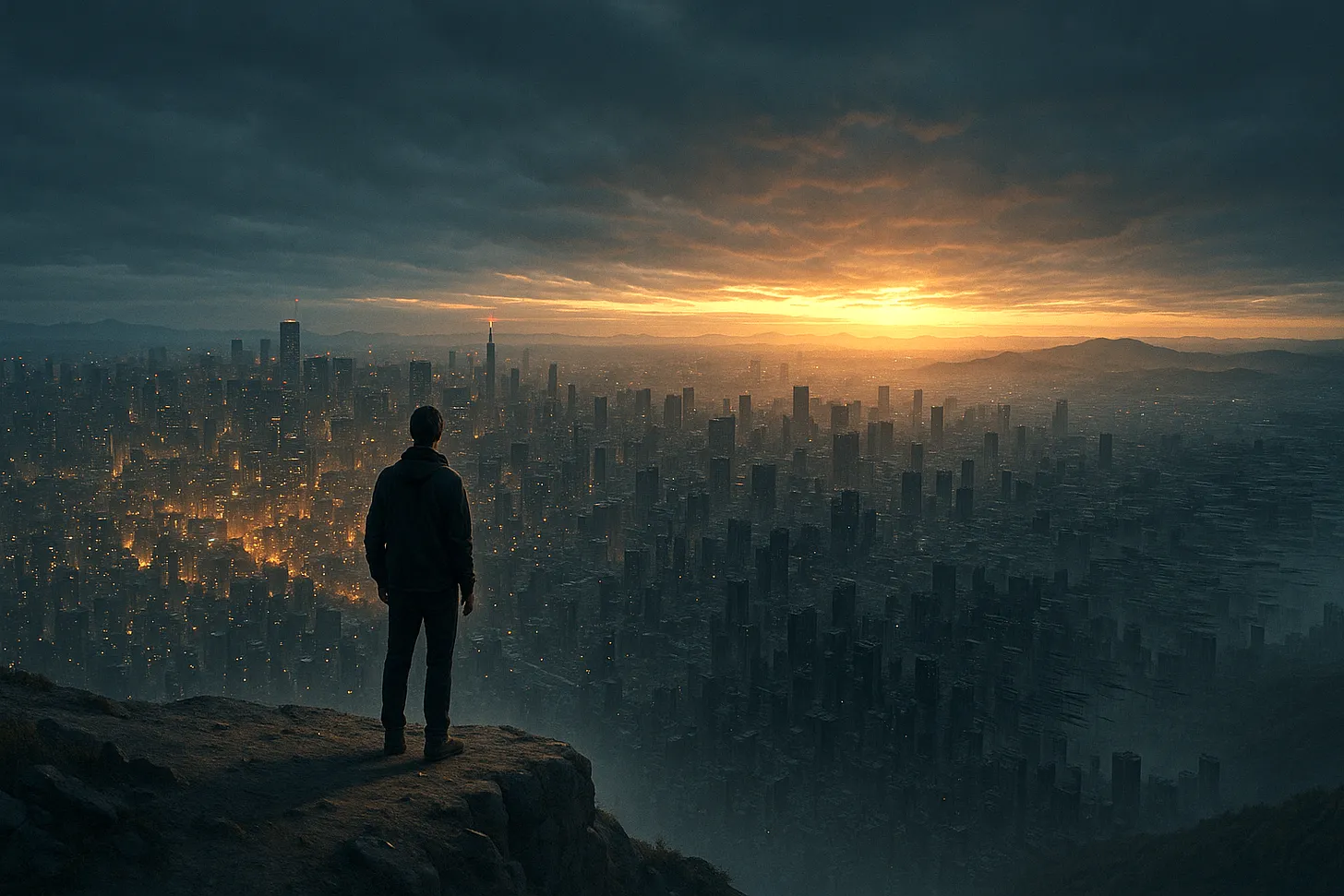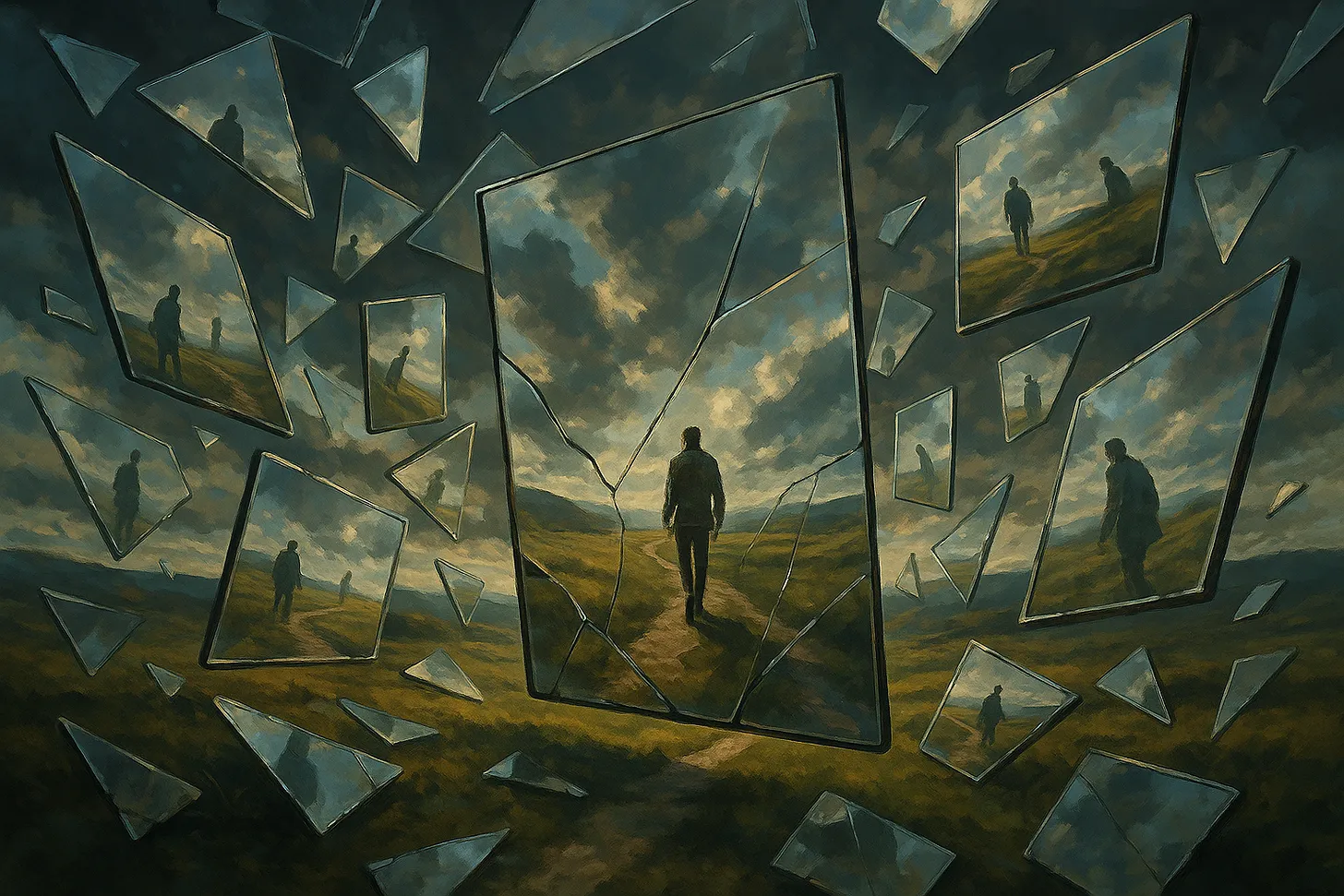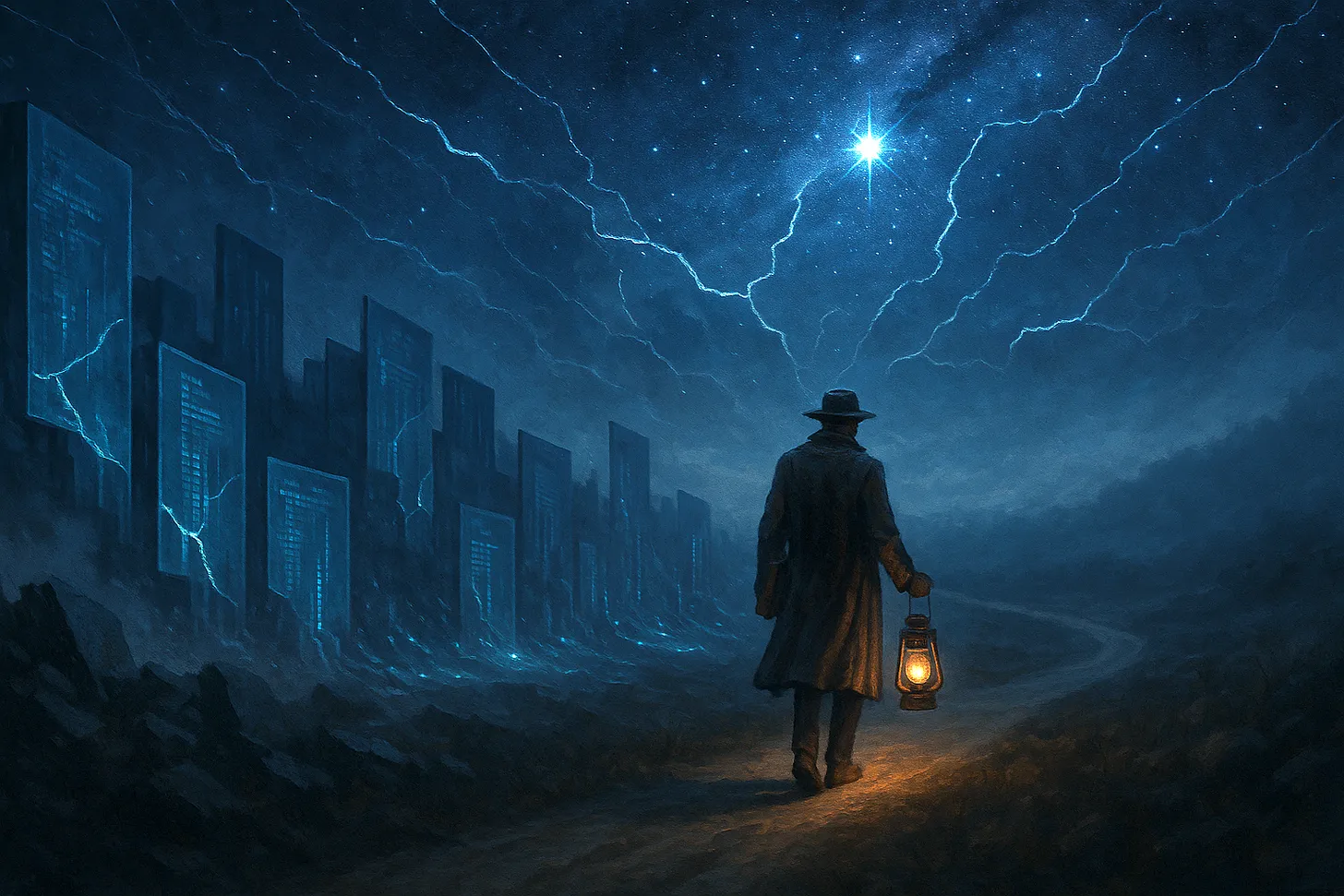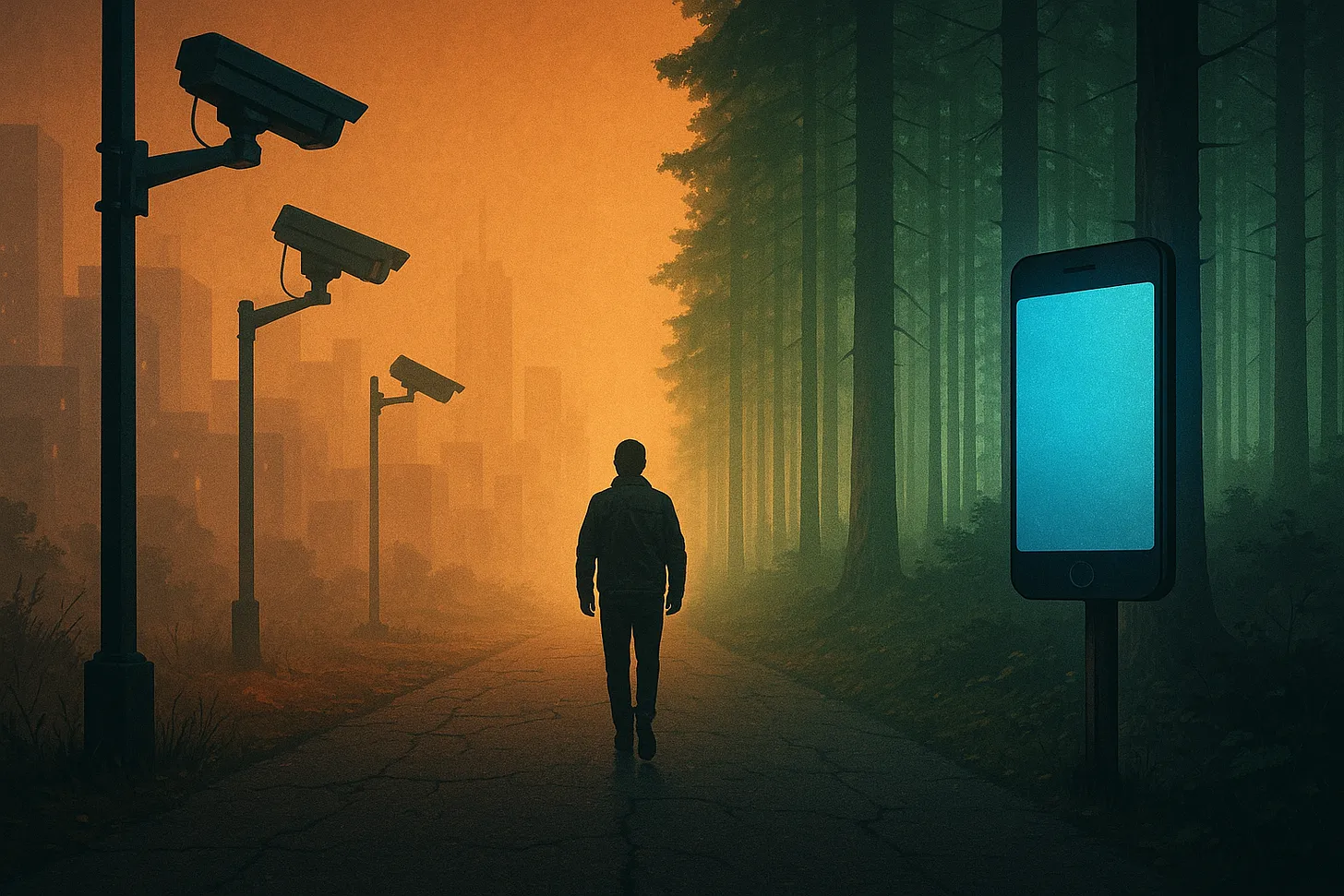Modern life does not fail loudly — it hums. It hums with stimulation, urgency, and ritualized compensation, masking misalignment just well enough to keep the machinery turning. Coffee, caffeine, and the countless “small” stimulants threaded through daily life are rarely questioned because they feel benign, even necessary. Yet beneath their ubiquity lies a subtler function: sustaining motion in systems that no longer nourish the human nervous system, spirit, or sense of meaning. What follows is not an indictment of coffee, but an examination of what it reveals.
Category: Lux Colloquii
Ongoing series of discussions with ChatGPT.
The Anatomy of a Managed Collapse: Signals from a Civilization in Freefall
There comes a point when the veil thins just enough for the attentive soul to glimpse the machinery behind the pageantry — the hum of consensus, the choreography of perception, the strange theatre of a world insisting on its own stability even as its foundations tremble beneath us. In that space between what we’re told and what we quietly observe, a deeper truth stirs, asking only that we stay awake long enough to notice what no headline ever will.
Shock Rituals and the Machinery of Illusion
We live in an age where shock has become ritual, and narrative eclipses reality. Screens light up with the same story, the same images, the same grief — but beneath the spectacle lies a deeper machinery at work. To see it is unsettling; to name it is often branded insensitive. Yet it matters, because if nothing else, our task is to discern what is real from what is staged, and to remember that even illusions shape the world we walk through.
The Rebirth of the Natural Philosopher
There is something stirring again, beneath the noise of curated narratives and the endless churn of consensus. We remember, not as nostalgia but as grounding — a memory of what was, before the enclosure. The natural philosopher re-emerges in this age of distortion, not as a relic of the past but as a witness, a wayfinder, a seeker who refuses the illusion and carries forward the fragments of truth left scattered in plain sight.
Through the Overton Window: Flock, Funding, and the Fabric of Surveillance
The age we’re living in feels increasingly curated, controlled, and surveilled. From cameras on poles to the algorithms in our pockets, the quiet pressure of ambient anxiety seeps into daily life. The potholes remain, but the panopticon grows. This is not just about technology, but about sovereignty — about remembering what is real, and reclaiming the ground beneath our own feet.




